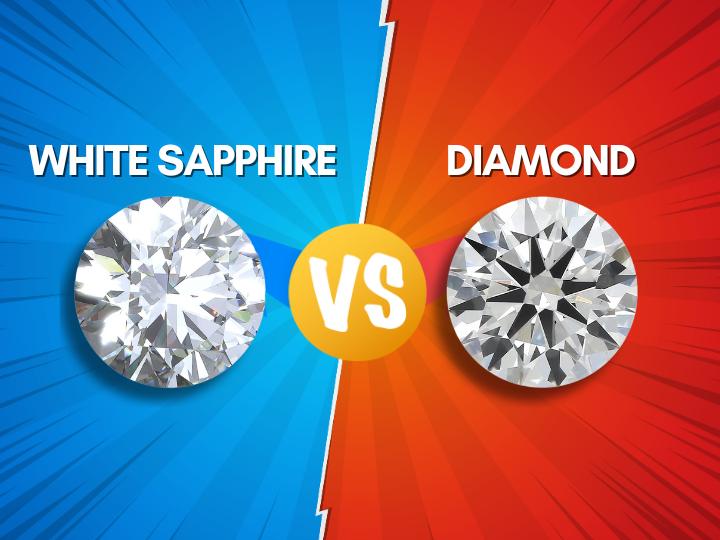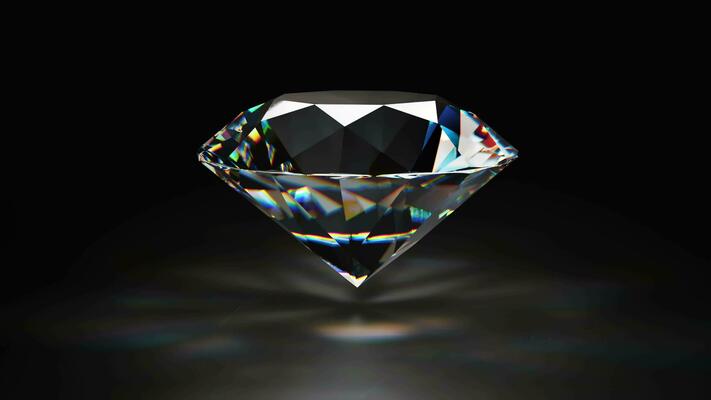
Pros and Cons of White Sapphire: A Comprehensive Guide
White sapphire has gained popularity as an alternative to diamonds, offering a similar appearance with a unique set of properties that makes it both desirable and different. But like any gemstone, it has its own advantages and drawbacks. This article explores the pros and cons of white sapphire, helping you decide if this gemstone might be the right choice for you.
Table of Contents
ToggleWhat is White Sapphire?
White sapphire is a colorless variety of the mineral corundum. This gemstone is known for its durability and clarity, sharing many characteristics with the famous blue sapphire but without the color. It’s a popular choice for engagement rings, fashion jewelry, and other adornments because it provides a striking look similar to that of a diamond but often at a more affordable price. Understanding the pros and cons of white sapphire can help you weigh its value and appropriateness for your needs.
The Pros of White Sapphire
Affordability Compared to Diamonds
One of the biggest pros of white sapphire is its affordability. White sapphire is often available at a fraction of the cost of a diamond of similar size and quality. For individuals who want the look of a diamond but are conscious of their budget, white sapphire presents a desirable option. This affordability factor is a significant pro of white sapphire for people wanting to make a statement without the high price tag.
Durability and Hardness
Another strong advantage when considering the pros and cons of white sapphire is its durability. Ranking just below diamonds on the Mohs hardness scale, white sapphire scores a 9 out of 10. This high hardness rating makes it resistant to scratches and abrasions, allowing it to maintain its polish and clarity over time. The pros of white sapphire in terms of durability make it ideal for engagement rings and daily wear, as it can withstand everyday activities without damage.
Ethical and Eco-Friendly Choice
White sapphires are often considered a more ethical choice compared to diamonds. While diamonds sometimes raise ethical concerns related to mining practices, white sapphires can often be sourced more sustainably. For people concerned about the environmental and ethical impact of their jewelry, white sapphire offers a cleaner conscience. The pros and cons of white sapphire frequently include this ethical consideration as an essential factor, adding to its appeal for conscientious buyers.
Versatile and Attractive Appearance
In terms of appearance, white sapphire has a distinct appeal. It mimics the brilliance of a diamond and offers a similar sparkle, though it has a softer, more subtle shine compared to a diamond’s fiery reflection. Its colorless nature makes it a versatile gemstone that complements various jewelry settings and metal types. Many people appreciate the aesthetic pros of white sapphire, as it provides an elegant look suitable for many occasions without overpowering the design of the jewelry piece.
The Cons of White Sapphire
Lower Brilliance Compared to Diamonds
A key drawback to consider when exploring the pros and cons of white sapphire is its lower brilliance. While white sapphire can be attractive and elegant, it does not have the same level of light refraction as a diamond. lab grown diamonds are well known for their sparkle, and this brilliance is one of their most sought-after qualities. White sapphire lacks this fiery display of light, resulting in a more subdued shine. The cons of white sapphire’s lower brilliance may disappoint those looking for the iconic sparkle that diamonds provide.
Requires Frequent Cleaning
White sapphire tends to attract dirt and oils more readily than diamonds, meaning it may require more frequent cleaning to maintain its shine. When considering the pros and cons of white sapphire, the additional upkeep can be a drawback. Over time, white sapphire can lose its luster and look cloudy if not cleaned regularly, requiring extra attention and care. Those who prefer low-maintenance jewelry may find this aspect of white sapphire to be inconvenient.
Less Resale Value
Another potential downside when weighing the pros and cons of white sapphire is its lower resale value. Unlike diamonds, which tend to hold their value relatively well, white sapphires do not command the same market demand or investment potential. If you are looking for a gemstone that could potentially serve as a long-term investment, the cons of white sapphire’s resale value may be a crucial consideration. This factor often makes diamonds more appealing to buyers who view their jewelry as an asset.
Limited Availability and Options
White sapphire is not as widely available as diamonds, which can make it more challenging to find a quality stone that meets your specifications. Although the pros of white sapphire include affordability, its availability can vary, particularly when it comes to high-quality stones with minimal inclusions. This limited availability could be a downside for buyers who want a specific shape, size, or clarity in their gemstone.
If you’re looking for high-quality diamonds, be sure to visit novitadiamonds.com. You’ll find the best diamonds and engagement rings.
Is White Sapphire Right for You?
After exploring the pros and cons of white sapphire, the decision ultimately depends on what you value most in a gemstone. If you’re looking for an affordable, durable, and ethically sourced stone with a subtle brilliance, white sapphire may be an ideal choice. Its elegant appearance and budget-friendly price make it particularly appealing for engagement rings and other significant pieces. However, if you prioritize resale value, maximum sparkle, or a low-maintenance stone, you may find that diamonds or other alternatives are a better fit.
Caring for White Sapphire Jewelry
Proper care is essential for maximizing the beauty and longevity of white sapphire. To maintain its clarity and shine, it’s recommended to clean white sapphire jewelry regularly with mild soap and warm water, followed by gentle brushing with a soft cloth. Avoid exposing the gemstone to harsh chemicals or extreme temperatures. Understanding both the pros and cons of white sapphire can guide you in caring for it, helping you enjoy its beauty for years to come.
Conclusion
White sapphire offers a unique alternative to diamonds, presenting a blend of advantages and disadvantages that make it appealing to a range of buyers. The pros and cons of white sapphire underscore its versatility, affordability, and ethical considerations, while also highlighting its limitations in brilliance, maintenance requirements, and resale potential. For those drawn to its qualities, white sapphire provides an elegant, durable, and cost-effective gemstone choice that is ideal for both everyday wear and special occasions. Ultimately, understanding the pros and cons of white sapphire can help you make an informed choice that aligns with your preferences, budget, and lifestyle.
More Stories
The Future of Lab-Grown Diamonds: A Sparkling New Era
Lab-grown diamonds are no longer a niche market; they have quickly become a popular and accepted alternative to mined diamonds....
Diamond Cuts Explained: How to Choose the Perfect Shape for Your Ring
The jewelry industry is undergoing a major transformation, with lab-grown diamonds emerging as a preferred choice for ethical and sustainable...
The Beauty and Brilliance of Lab Grown Diamond Earrings
Lab grown diamond earrings have gained immense popularity among jewelry enthusiasts who seek ethical and sustainable alternatives to natural diamonds....
Lab-Grown Diamonds: The Future of Ethical Luxury
Lab-grown diamonds have taken the jewelry industry by storm, offering a sustainable and ethical alternative to mined diamonds. These stunning...
Ring Size Guide for Finding the Perfect Fit
Introduction: Why a Ring Size Guide is Essential Choosing the perfect ring is an exciting experience, but ensuring that the...
CEO of Novita Diamonds: Leading Innovation in the Diamond Industry
Novita Diamonds is an emerging leader in the world of luxury jewelry, renowned for offering lab-grown diamonds that are indistinguishable...


